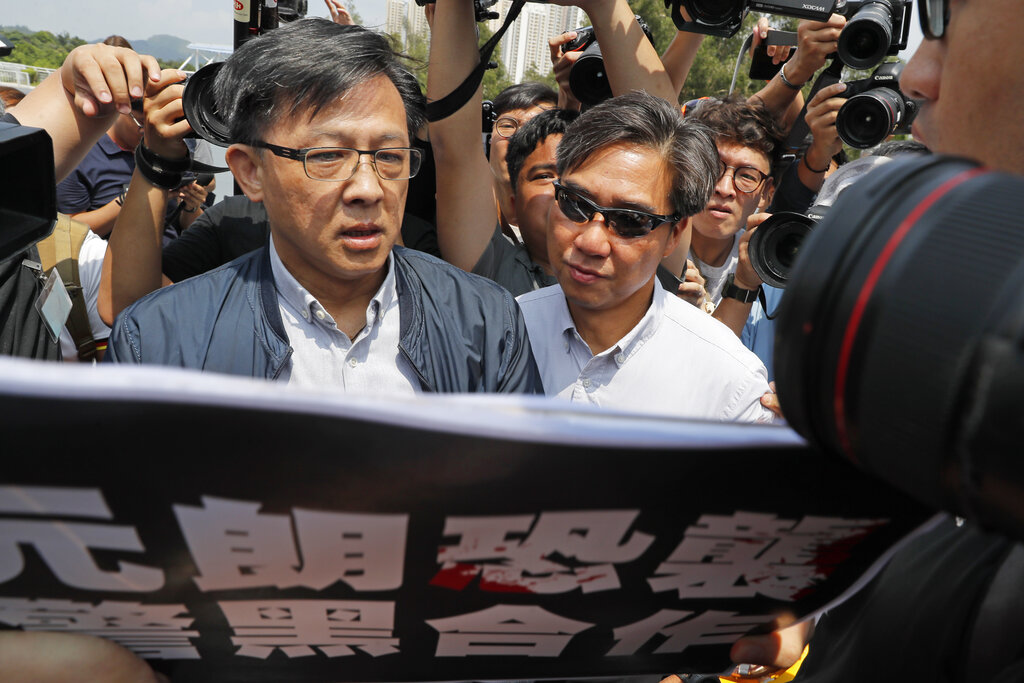An anti-government assailant stabbed and wounded a pro-Beijing Hong Kong lawmaker who was election campaigning on Wednesday, police said, in another escalation of violence surrounding the protests demanding political reforms in the semi-autonomous Chinese territory.
Junius Ho has become a hated figure by the protesters over his alleged links to violence against them. After receiving initial medical treatment, Ho told reporters the knife had been blocked by his rib cage and he was left a minor 2-centimer (0.79-inch) deep wound.
The government condemned the attack and said police arrested the assailant. Ho, his assistant and the attacker were hospitalised, said a police official who requested anonymity because he wasn't authorised to make statements.
A video circulating on social media showed a man giving flowers to Ho and asking permission to snap a picture with him. Instead, the man drew a knife from his bag and stabbed Ho's chest but was quickly overpowered by Ho and several others.
The man kept hurling abusive comments at Ho, calling him 'human scum.'
Ho has been targeted by anti-government protesters since July 21, when armed masked men in white T-shirts violently attacked demonstrators and passengers at a subway station in northern Yuen Long, injuring 45 people.
The attack marked a dark turn in the protests that began in early June, and demonstrators have accused police of being slow to respond or even colluding with the attackers. Police later said members of triad gangs, a branch of organised crime, were involved in the attack. Ho was seen shaking hands with some of the attackers that night.
Ho, whose constituency includes Yuen Long, denied colluding with triads. He said he bumped into the men after dinner and thanked them for 'defending their homes' but said he didn't know about the violence until later.
Protesters have thrashed Ho's office several times and desecrated his parents' graves.
Ho was campaigning for November 24 district elections to pick 452 councilors, a low-level poll held every four years but closely watched this year as a gauge of public sentiment after five months of protests increasingly marked by violence by hardcore activists and hardening positions among public officials. The seats are currently dominated by the pro-establishment bloc.
Many have seen the extradition bill that sparked the protests as a sign of Beijing infringing on Hong Kong's judicial freedoms and other rights guaranteed when the former British colony returned to China in 1997.
Hong Kong leader Carrie Lam, on a visit to the mainland, met with Chinese President Xi Jinping in Shanghai on Monday in what was seen as an endorsement of her government's handling of the protests. Vice premier Han Zheng reiterated the support on Wednesday after talks with Lam in Beijing.
'The violent activities carried out by radical separatist forces have gone far beyond the bottom line of law and ethic, which violated 'one country, two systems' and Hong Kong's prosperity and stability,' Han Zheng said. 'The most important work for the Hong Kong society now is to stop violence and restore order.'
The foreign ministry recently dismissed a report that Beijing planned to replace Lam next year. In a statement on Tuesday night, China's ruling Communist Party said it would 'perfect' the system for appointing and dismissing Hong Kong's leader and top officials, in an indication of firmer grip on the territory. No details were given.










